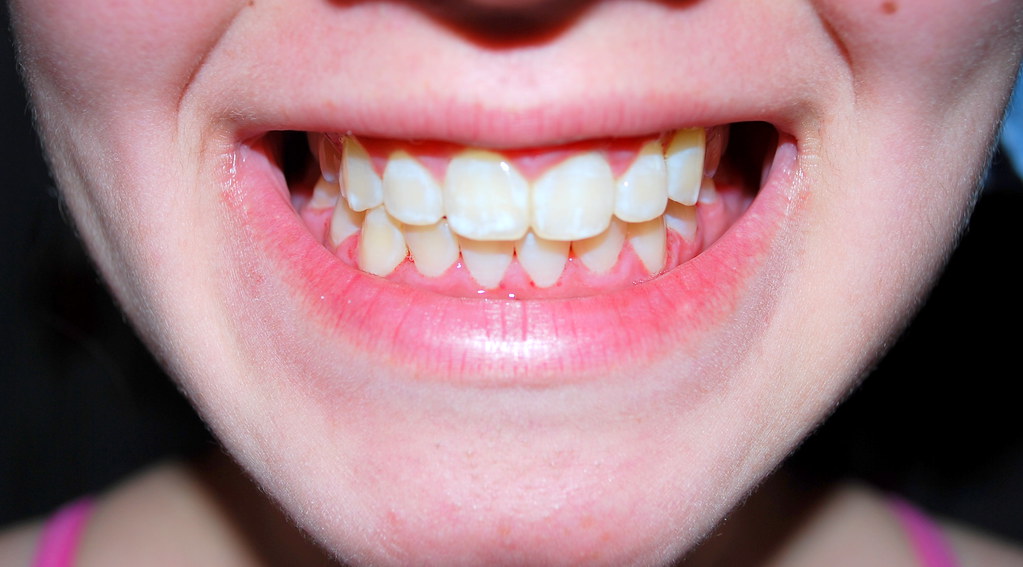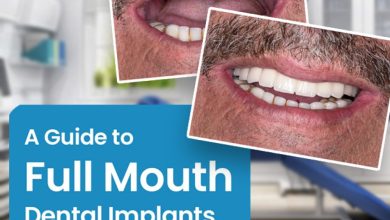How Long Can You Keep Your Teeth With Periodontal Disease?

The life of your teeth with periodontal disease can vary, but early treatment is key to maintaining their longevity.
The Impact Of Periodontal Disease On Tooth Longevity
The Impact of Periodontal Disease on Tooth Longevity
Periodontal disease, also known as gum disease, is a serious oral health condition that affects the gums, bone, and tissues surrounding the teeth. When left untreated, it can lead to tooth loss and have a significant impact on the longevity of your teeth.
Periodontal disease starts with the accumulation of plaque and tartar on the teeth, which can irritate and inflame the gums. Over time, the inflammation can progress and cause the gums to recede, exposing the sensitive roots of the teeth. This exposes the teeth to bacteria and can lead to tooth decay and infection.
According to statistics, periodontal disease is a leading cause of tooth loss. It has been estimated that approximately 30% of adults aged 30-44 have periodontal disease, and the prevalence increases with age. About 47% of adults over the age of 30 and 70% of adults over the age of 65 have some form of periodontal disease.
| Age Group | Prevalence of Periodontal Disease |
|---|---|
| 30-44 | 30% |
| Over 65 | 70% |
These statistics highlight the importance of maintaining good oral hygiene practices and seeking prompt treatment for periodontal disease to preserve the longevity of your teeth. Regular dental check-ups, proper brushing and flossing, and early intervention can help prevent the progression of periodontal disease and protect your teeth for longer.
Understanding The Stages Of Periodontal Disease
Gingivitis, the early stage of periodontal disease, is characterized by symptoms such as red, swollen, and tender gums, bleeding while brushing or flossing, and bad breath. It is essential to address these symptoms promptly through good oral hygiene practices like regular brushing, flossing, and professional cleanings.
If left untreated, gingivitis can progress into periodontitis, a more severe stage characterized by persistent gum inflammation and deep pockets forming between the gums and teeth. At this stage, the bone and connective tissues supporting the teeth can be damaged. Periodontitis requires more extensive treatments, such as scaling and root planing or even periodontal surgery.
In advanced periodontitis, severe damage to the bones, gums, and tissues occurs. This can lead to tooth loss or the need for extractions. It is crucial to seek immediate dental intervention to prevent further complications. Treatment options for advanced periodontitis may include gum grafting, bone grafting, or dental implants to restore oral health.
Factors Influencing The Longevity Of Teeth With Periodontal Disease
Factors such as oral hygiene practices, genetics, and lifestyle choices play a crucial role in the longevity of teeth affected by periodontal disease. Regular brushing and flossing are essential in maintaining optimal oral hygiene. By removing plaque and bacteria buildup, individuals can help prevent further damage to their teeth and gums. Genetic factors also contribute to periodontal health, as some individuals may have a higher predisposition to developing gum disease. It is important to be aware of this risk and take necessary precautions, such as more frequent dental check-ups and professional cleanings. Lifestyle choices such as smoking, diet, and stress can worsen periodontal disease. Smoking weakens the immune system and restricts blood flow to the gums, making it harder for the body to fight off infection. A poor diet lacking in essential nutrients can also impact gum health. Lastly, stress can compromise the immune system, making it more difficult for the body to combat gum disease. By adopting healthy oral hygiene practices and making positive lifestyle choices, individuals can help prolong the life of their teeth despite having periodontal disease.
The Role Of Dental Professionals In Maintaining Teeth With Periodontal Disease
Regular dental check-ups and professional cleanings play a crucial role in preserving teeth affected by periodontal disease. These routine visits are important for preventing further damage and maintaining oral health. Dental professionals have various non-surgical and surgical interventions at their disposal to address periodontal disease.
Importance Of Regular Dental Check-ups And Professional Cleanings
Regular check-ups allow dental professionals to assess the condition of your teeth and gums. By identifying early signs of periodontal disease, they can intervene promptly and prevent its progression. Professional cleanings, such as scaling and root planing, are essential for removing plaque, bacteria, and tartar buildup that contribute to the disease. These treatments help reduce inflammation and promote healing.
Non-surgical periodontal treatments: Scaling and root planing
Scaling and root planing are the initial treatment options for mild to moderate periodontal disease. This process involves the thorough cleaning of tooth surfaces and the removal of plaque and tartar below the gumline. By smoothing the root surfaces, the aim is to eliminate bacteria and provide a clean environment for healing.
Surgical interventions: Periodontal surgeries and their effectiveness
For advanced stages of periodontal disease, surgical interventions may be necessary. These procedures aim to treat severe gum and bone damage caused by the disease. Periodontal surgeries, such as gum grafts and bone grafts, can help regenerate lost tissues and restore stability to the teeth. The effectiveness of these surgeries depends on the individual case and the patient’s commitment to maintaining good oral hygiene.
Home Care Strategies To Preserve Teeth With Periodontal Disease
Proper oral hygiene plays a crucial role in preserving teeth with periodontal disease. Brushing technique is essential to minimize plaque buildup and gingival inflammation. It’s recommended to use a soft-bristled toothbrush with small, circular motions to clean all tooth surfaces thoroughly. Interdental cleaning tools such as dental floss and interdental brushes are effective in removing plaque and debris from between teeth and along the gum line. Regular use of interdental cleaners can help prevent gum disease progression. Mouthwashes and antimicrobial products provide additional benefits in controlling bacterial growth and reducing plaque and gingival inflammation. It’s important to select a mouthwash with antibacterial properties and follow the manufacturer’s instructions for usage. By incorporating these home care strategies into your oral hygiene routine, you can aid in preserving your teeth despite the presence of periodontal disease.
Long-term Outcomes And Prognosis For Teeth With Periodontal Disease
Long-Term Outcomes and Prognosis for Teeth with Periodontal Disease
Individuals with periodontal disease may wonder how long they can keep their teeth before they need to be extracted. The answer to this question varies based on several factors, including the severity of the periodontal disease and individual variability in tooth longevity.
When it comes to tooth longevity, there is a wide range of outcomes. Some individuals may experience relatively stable teeth for many years, even with advanced periodontal disease. In contrast, others may have a shorter lifespan for their teeth and require extraction sooner.
Dental implants have become a popular and viable option for tooth replacement in individuals with periodontal disease. These artificial tooth roots provide stability and support for prosthetic teeth, improving both function and aesthetics.
It is important to note that periodontal disease can have a significant impact on overall oral health. Advanced periodontal disease can lead to tooth loss, bone loss, and even systemic health issues. Therefore, proper oral hygiene and regular dental visits are crucial in managing and preventing the progression of periodontal disease.
| Key Takeaways |
|---|
| – Individual variability plays a role in tooth longevity with periodontal disease. |
| – Dental implants are a viable option for tooth replacement. |
| – Periodontal disease can have a significant impact on overall oral health. |
Monitoring And Preventing The Progression Of Periodontal Disease
To maintain healthy teeth and gums, it is crucial to actively monitor and prevent the progression of periodontal disease. Regular dental check-ups and periodontal screenings play a significant role in this. These appointments allow the dentist to assess the health of your gums, identify any signs of periodontal disease, and take appropriate measures to prevent further damage. Moreover, when it comes to avoiding periodontal disease, making certain lifestyle modifications can significantly decrease the risk. For instance, adopting a balanced diet, limiting the consumption of sugary foods and drinks, quitting smoking, and practicing good oral hygiene can all contribute to gum health. Additionally, following a dentist-recommended oral care routine is essential. This may involve brushing twice a day using a soft-bristle toothbrush, flossing daily, and using an antiseptic mouthwash.
The Cost Of Treating And Managing Periodontal Disease
The Cost of Treating and Managing Periodontal Disease
Periodontal disease not only impacts your oral health but can also have financial implications. The cost of treating and managing periodontal disease can vary depending on the severity of the condition and the treatment required. Dental insurance coverage for periodontal treatments is an important consideration. Some insurance plans may cover a portion of periodontal treatments, while others may have limited coverage or require pre-authorization.
When budgeting for long-term oral health care, it is important to take into account the potential costs associated with periodontal disease. Regular dental check-ups and cleanings can help detect early signs of gum disease and prevent it from progressing. Investing in preventive measures, such as proper oral hygiene and professional cleanings, can help reduce the risk of developing periodontal disease and minimize future treatment costs.
Success Stories: Individuals Who Have Maintained Teeth With Periodontal Disease
Success Stories: Individuals Who Have Maintained Teeth with Periodontal Disease
Personal accounts of managing periodontal disease and preserving teeth
Discover the strategies and tips shared by successful individuals who have overcome challenges and successfully maintained their oral health despite having periodontal disease. These inspiring stories will show you that you can keep your teeth even with this condition.
One individual recounts how regular visits to the dentist and practicing good oral hygiene habits have been crucial in preserving their teeth. They emphasize the importance of daily brushing and flossing, as well as using antibacterial mouthwash.
| Another success story highlights the significance of a healthy diet. They focused on consuming foods that promote gum health, such as fruits and vegetables rich in vitamins and antioxidants. |
| A third contributor shares their experience with professional treatments, such as scaling and root planing, which helped manage their periodontal disease and prevent further damage. |
| These individuals are proof that, with commitment and proper care, it is possible to maintain teeth even with periodontal disease. Their stories serve as inspiration and provide valuable insights into managing this condition while preserving oral health. |
The Emotional And Psychological Impact Of Tooth Loss Due To Periodontal Disease
The Emotional and Psychological Impact of Tooth Loss due to Periodontal Disease
Tooth loss due to periodontal disease can have a significant impact on an individual’s emotional and psychological well-being. The social implications of tooth loss on self-esteem and confidence are profound. This is because dental health plays a crucial role in one’s overall appearance, affecting how they interact and connect with others.
The psychological effects of tooth loss can include feelings of embarrassment, shame, and self-consciousness, leading to a decline in self-esteem. Individuals may avoid social situations and withdraw from activities they once enjoyed. The importance of mental well-being cannot be overstated, as tooth loss can have a detrimental impact on an individual’s quality of life.
In order to cope with tooth loss, it is important to develop coping strategies and seek support systems. This may involve seeking professional help, such as therapy or counseling, to address any underlying emotional challenges. Additionally, exploring treatments such as dental implants or dentures can help restore confidence and improve overall well-being.
Optimizing Oral Health For A Longer Lifespan Of Teeth With Periodontal Disease
Periodontal disease, if left untreated, can have a profound impact on the longevity of your teeth. To ensure your teeth remain healthy despite this condition, it is critical to adopt holistic oral health care approaches.
One of the key factors in maintaining oral health is making wise dietary choices. Consuming a balanced diet rich in vitamins, minerals, and antioxidants can strengthen your immune system and assist in the healing process. Focusing on nutrient-dense foods such as fruits, vegetables, lean proteins, and whole grains can contribute to healthier gums and teeth.
Additionally, stress management techniques can significantly affect oral health. High levels of stress can weaken the immune system, making it difficult for the body to combat periodontal disease. Exploring stress reduction techniques, such as exercise, meditation, and deep breathing exercises, can help alleviate the impact of stress on oral health.
By embracing holistic oral health care approaches, focusing on dietary choices, and incorporating stress management techniques, you can increase the lifespan of your teeth despite periodontal disease.

Credit: cloudmineinc.com
Frequently Asked Questions For How Long Can You Keep Your Teeth With Periodontal Disease?
Will I Lose My Teeth If I Have Periodontal Disease?
Periodontal disease can lead to tooth loss if left untreated. It’s crucial to seek timely treatment and maintain good oral hygiene to prevent further damage. Neglecting periodontal disease increases the risk of tooth loss. Remember to visit your dentist regularly for check-ups and cleanings.
How Long Can Teeth Last With Periodontal Disease?
Teeth may last a lifetime even with periodontal disease, but it depends on the severity and treatment. Seek early intervention to save teeth.
Can Teeth Be Saved With Severe Periodontal Disease?
Yes, teeth can be saved even with severe periodontal disease. Early diagnosis and proper treatment, including deep cleaning and periodontal therapy, can help halt the progression of the disease and save the teeth. Regular dental check-ups and maintaining good oral hygiene are crucial for managing periodontal disease.
Can You Live A Long Life With Periodontal Disease?
Yes, you can live a long life with periodontal disease by managing and treating it effectively. Regular dental check-ups, good oral hygiene, and healthy lifestyle choices can help maintain overall oral health and prevent further complications.
Conclusion
It is imperative to address periodontal disease promptly to preserve oral health. Neglecting the condition can result in irreversible damage, leading to tooth loss and other complications. By seeking early intervention and maintaining good oral hygiene practices, individuals can increase their chances of keeping their natural teeth for a longer time.
So, make regular dental check-ups and oral care routines a priority to safeguard your pearly whites.





